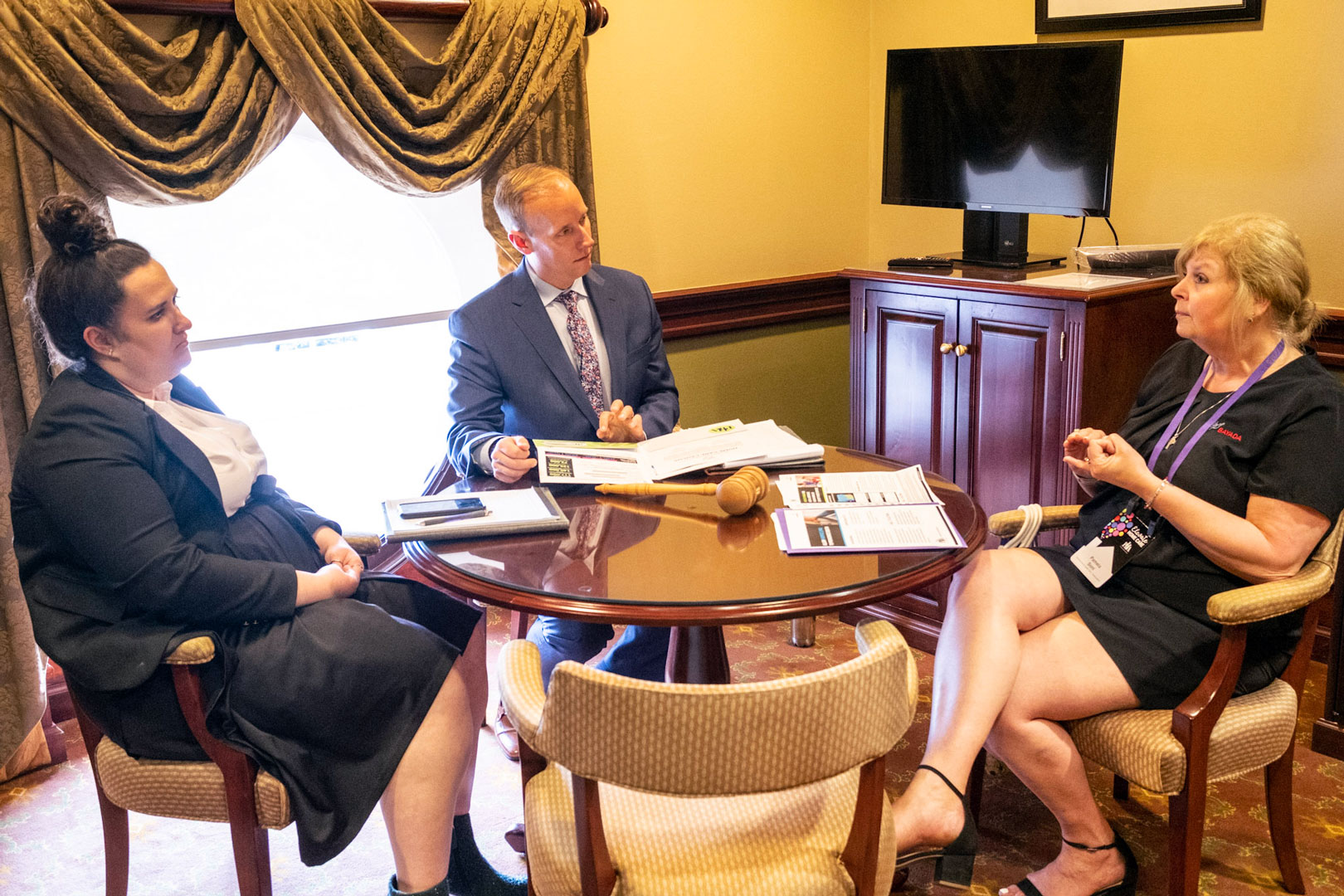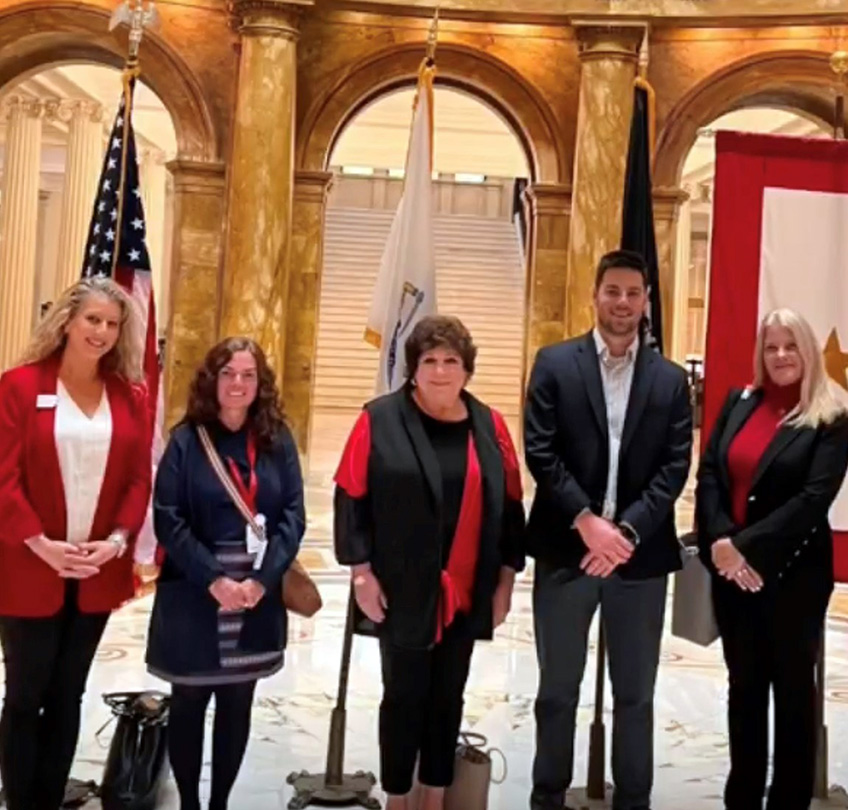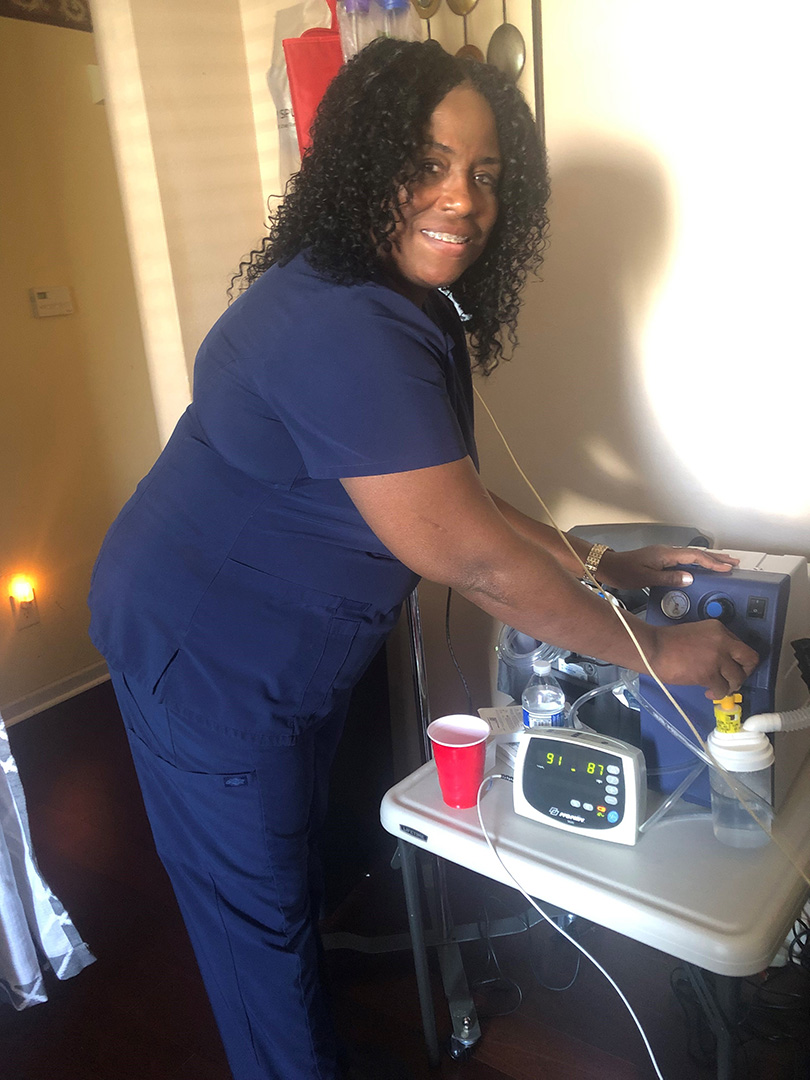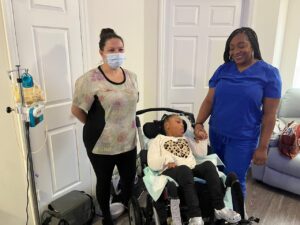The term “nurse” often brings to mind images of individuals in scrubs taking care of patients in hospitals and doctor’s offices. In honor of National Nurses Week, it’s important that we not forget about the important and selfless work that home care nurses do to keep hundreds of thousands of individuals at home and out of institutional settings.
Nurses in the private duty nursing (PDN) field are often forgotten when it comes to celebrating the nursing profession. It’s these nurses who tirelessly provide one-on one services to keep individuals in their communities and keep families together. Home care nurses care for medically complex children and adults, including those who are reliant on feeding tubes, trachs, ventilators, and other specialized equipment. Without skilled home care services, most of these individuals would be forced to live their lives in a nursing home or another long-term institution.
Despite giving critical care as a team of one, home care nurses make far less in wages than their counterparts in doctor’s offices or hospitals. The issue stems from state Medicaid funding for home care programs, which dictate their hourly wages. Oftentimes, these state-based wages haven’t been adjusted in years—leaving them trailing woefully behind costs of living and wage pressures that have skyrocketed. This leaves home care nurses in a bind: They must often choose whether to remain underpaid in the profession they love—or leave the families that rely on them in order to find better-paying nursing work elsewhere.
Below are a few Hearts for Home Care nurses who advocate on behalf of themselves, their peers, and their clients. These nurses see that the home care nursing workforce shortage is one that needs to be solved for: Without legislative support for increased home care program funding, they know that it will be even more difficult for home care clients to be able to access the care they need to stay at home.

Pam Soni of New Jersey has over 20+ years of clinical experience working as a nurse. She joined Hearts for Home Care a few years ago when she realized she had a passion for advocacy. Since Pam has been a part of the Hearts for Home Care program, she has recruited many others to join her in advocacy, serves as a ‘senior ambassador’ to help newer advocates learn the ropes, and she continues to drive conversation in support of our veterans as part of the National Veteran Advisory Council within the Home Care Association of America (HCAOA). Pam recently met with NJ Congressman Andy Kim regarding the federal “Choose Home Act,” and met with NJ State Senator Orohu to discuss the state’s PDN program and need for rate increases—as well as several PA State Senators for Pennsylvania Homecare Association’s Lobby Day. “I see advocacy as an integral part of my day-to-day job. If I don’t take the time to be the voice on behalf of our nurses and clients, who will? We need to make sure that home care is available for those who need it today, and those who will need it in the future,” she says.

Karen Fitton of the Boston area of Massachusetts has 30+ years of home care nursing experience, and she innately understands the needs of her clients and the field nurses that she oversees in her role as a BAYADA office director. Karen says, “I truly enjoy connecting with the families and talking to them about the struggles they have. A lot of the issues that they’re having right now are due to the nursing shortage.” Karen did not let the COVID-19 pandemic stop her from advocating—she met regularly with Massachusetts lawmakers over Zoom, and was an integral part of the successful legislative hearings that led to increased Medicaid funding for nurses in Massachusetts’s Continuous Skilled Nursing (CSN) program. She is eager and determined to make sure that the voices of those struggling to get home care services are heard loud and clear by regulators and legislators in MA. Karen’s unstoppable work ethic and her deep desire to help others has touched the lives of so many nurses, clients, and families across the state.

Anissa McCray is a Licensed Practical Nurse (LPN) from North Carolina. She has worked for BAYADA since 2011. She says: I chose to work in home health care to provide exceptional quality care to clients in the privacy of their homes on a one-on-one basis. I love home health nursing. I am able to provide my professional knowledge, patient care, and clinical decision making. There is flexibility, work balance, and other assets… But there are also challenges that I have faced. The wages are low and noncompetitive. I have to supplement my income and work other jobs. I have two clients I work with. I only take assignments in Greensboro and Highpoint due mileage and high gas prices. Home health can really use an upgrade in pay due to the different client tasks, family dynamics, and some of the high crime areas we work in.
Kwamaine Mathis is a Registered Nurse (RN) and clinical instructor in New Jersey. She has more than ten years of experience in home care. She started out as a certified nursing assistant (CNA) and fell in love with delivering one-one-one care to individuals in their homes, which led her to continue her nursing education. Kwamaine wants lawmakers to know that, “because reimbursement rates are higher for nursing care in hospitals and other facilities, it puts strain on the nurses that do stay the home care field and must work longer hours and longer days. As nurses we want to show up, be reliable and compassionate… but it leads to burnout. I want legislators to understand that behind every bill and every ask in support of home care is a group of individuals who work tirelessly to make sure the needs of their clients are met.”
Kwamaine put together a video for legislators to educate them on the challenges that nurses and families face as a result of the home care workforce shortage. You can watch that Zoom video here.








